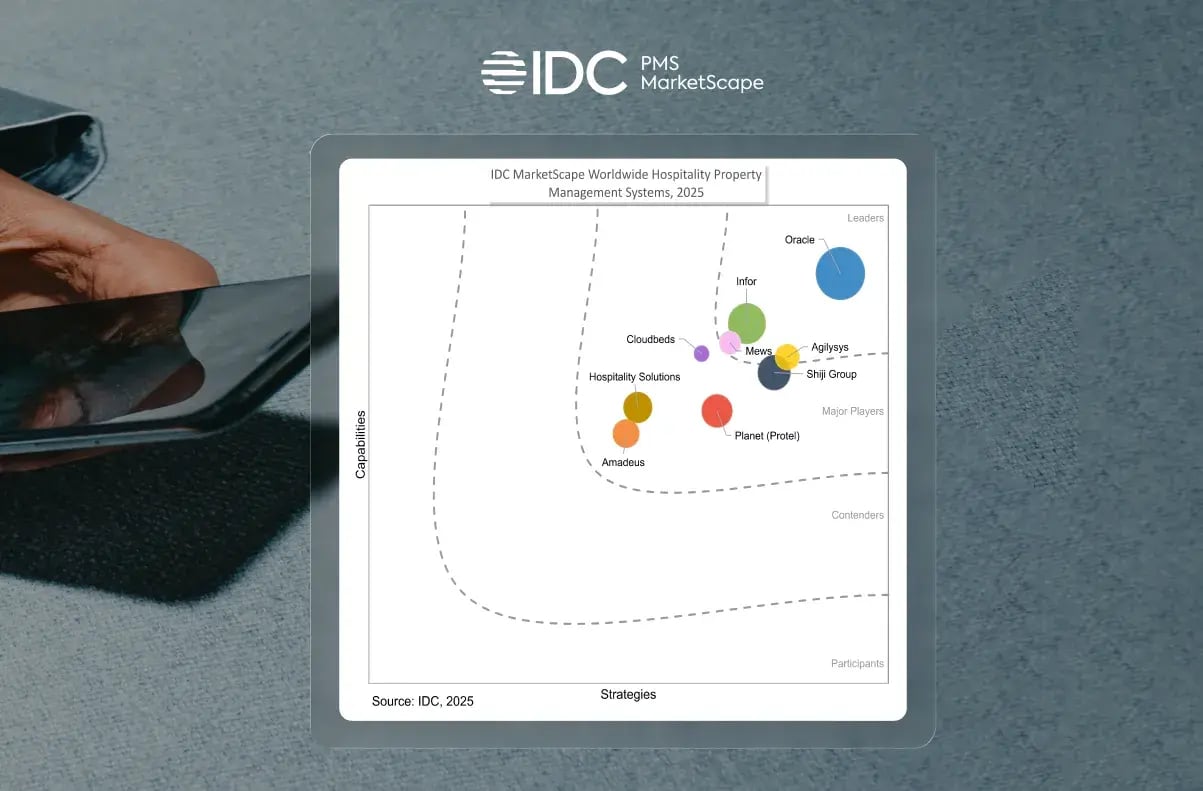Loyal clients are what all hotels strive for. The more loyal the client, the less likely they are to switch to another brand - and hotel loyalty programs are an ideal way to seal the deal.
While there are many different strategies behind these programs, the main purpose is always the same: incentivize potential guests to choose your hotel over another one, and then keep coming back.
We’re all different, so making sure your loyalty program caters to the various needs, desires and motivations of your guests is fundamental to a program’s success. And carrying out a unique marketing strategy for these different profiles (including a tiered approach), offering personalized offers, and getting consistent feedback from your members will guarantee the longevity of your rewards program.
Let’s talk about the benefits of hotel loyalty programs, the best strategies, and how these strategies can help to increase your hotel’s results. Ready?
Table of contents
What is a hotel loyalty program?
A hotel loyalty program is a reward program similar to an airline's mileage rewards program in that it offers benefits for traveling more frequently. Essentially, it’s a marketing strategy that hotel chains (and sometimes independent hotels) use to attract and retain guests by offering sales, offers, and other privileges.

10 Best hotel loyalty programs
Carrying out competitor research is fundamental to properly setting up your hotel loyalty program. It’s important to know what other hotels of the same category and location are doing with their own to encourage guests to sign up to be members. Below we list 10 hotel loyalty programs to keep an eye on.
1. Marriott Bonvoy
The Marriott Bonvoy gives points on hotel stays, dining and car rental. These points can then be redeemed for free nights, flights, car rentals and experiences. Once guests have reached elite status they can enjoy benefits like room upgrades, late check-out and access to the lounge. Guests can also transfer their points to Marriott’s airline partners, giving them a discount when they fly.

2. Hilton Honors
Hilton partners up with Amex, meaning that for every point transferred from Amex, guests are eligible for Hilton points. With Hilton’s elite silver status, guests can get the fifth consecutive night free. They can also access benefits like room upgrades, free breakfast and bonus points.

3. World of Hyatt
Hyatt hotels have more affordable loyalty rates. Points can be used for free nights, room upgrades and other services. With elite status, guests are eligible for upgrades, club lounge access and free breakfast.

4. IHG One Rewards
With the IHG One Rewards program, guests earn points on hotel stays, dining, car rentals and more. Guests can then redeem for a free night’s stay, gift cards, different merchandise and a myriad of experiences. With elite status, guests are eligible for room upgrades, welcome amenities and a particular favorite, late check-out.

5. Accor Live Limitless
Accor’s loyalty program can be applied to a variety of brands. Elite members can access room upgrades, welcome drinks, and experiences designed exclusively for reward members. Guests can use points for free nights, event tickets, car rentals and different experiences. They can earn points by staying at an affiliated property or dining in the hotel restaurants.

6. Radisson Rewards
With Radisson Rewards, guests can earn points on stays and dining, which can then be redeemed for a free night’s stay, airline miles or gift cards. With elite status, guests can access room upgrades, early check-in and be eligible for discounts on food and beverages.

7. Wyndham Rewards
Wyndham offers three cobranded credit cards that will help earn free nights. Capital One and Citi can be transferred on a 1:1 ratio. Points can also be used to stay at vacation rentals.

8. Choice Privileges
Choice offers two cobranded credit cards, and they allow points to be transferred 1:1 for Amex and Capital One. The elite status tiers are limited in the room upgrades available, and complimentary breakfast is only offered at select brands to top-tier elite members.

9. Sonesta Travel Pass
The Sonesta Travel Pass’s points are easy to earn and redeem. When guests sign up for the Sonesta World Mastercard, they can earn additional points for charges made at the property and even more on purchases like flights, car rentals and dining. They offer room rates specifically for members, dining and amenity discounts, customized room preferences, as well as priority check-in and checkout.

10. Best Western
Best Western offers free breakfast even if you don’t have elite status. They give access to exclusive rates for loyalty members, giving bonus points for every stay, as well as the possibility to check in early and check out late. Guests can even buy points to put towards a free night’s stay, without them expiring by a set date. Guests can earn points for redemptions like gift cards, free nights and experiences.

So, now you have seen some of the commonalities between different rewards programs:
- Earning points: Hotels allow guests to earn points based on hotel stays, dining and other activities with program partners. The higher the tier of the guest, the higher earning potential they have, which helps to encourage loyalty and repeat business.
- Redemption: Most hotel rewards programs give free nights, but many programs will also offer redemption on airline miles, gift cards, merchandise and experiences.
- Tiered programs: There are usually several tiers, and members progress based on the nights stayed or points they have earned. Elite tiers tend to have added benefits such as better upgrades, early check-in, late check-out or other personalized services.
- Flexibility: Hotels typically make it easy to sign up for loyalty programs and ensure that points don’t expire so long as guests regularly gain or redeem program points.
- Partnerships: Hotels often partner up with other companies, such as airlines, rental car companies, restaurants and travel businesses to allow members to earn points through multiple avenues. This allows guests more opportunities to redeem points regularly.
What are the benefits of using a loyalty program in hotels?
Now that we’ve looked at what a hotel loyalty program is, as well as some of the best ones, let’s consider the benefits.
Know your guest
Any strategy should always be accompanied by data, and one of the benefits to having a rewards program is that you have this at your fingertips. You can use this to create a valuable guest profile, which will help you launch customized discounts and targeted privileges like upgrades.
For example, you can use the guest’s geographic profile to target language preferences and make sure you have multilingual staff to greet them, as well as share language-specific marketing materials. Or, if most of your hotel loyalty program members are corporate, you can target them with deals specifically desirable to them. This could include airport shuttles, business center discounts, or spa services for a welcome break from the workday.
Attract frequent travelers
Frequent travelers, especially corporate guests, are looking for ease of booking and are likely to repeat if they are happy. As well as this, they also tend to travel regularly to the same locations. So, with the help of a loyalty program, you are likely to attract these frequent travelers, because they seek out hotels that will reward them for repeat bookings.
Guest retention and cost effectiveness
Loyalty programs are a terrific way for hotels to boost guest retention. In fact, a study from the Harvard Business Review found that generating a new customer was five to 25 times more expensive than retaining a current customer. The same study found that increasing customer retention rates by 5% increased profits from anywhere between 25% to 95%.
The stats don’t lie. The best hotel loyalty programs build happy customers and long-term relationships, reducing costs and increasing profit margins.
More bookings
Not only do loyalty programs entice travelers to book based on rewards and perks, but they are also useful for attracting new bookings. Whereas a leisure guest might be more likely to book a last-minute getaway because they have a deal or a coupon, corporate guests are often repeat and quality bookers. For example, your corporate guest could travel on business to multiple locations where the hotel is based across the year. And if they are loyalty program members, they will likely book these stays with you.

How to set up the best hotel loyalty program for your properties
Setting up the best hotel rewards strategy for your property is no easy task, but the following ideas and strategies will set you off to a good start.
Define “loyalty” for your brand
Loyalty can differ from brand to brand, but the important part of defining a loyalty program is defining what loyalty is for your brand and how you are going to reward it. Be strategic about how you do this and have a plan from the beginning. Make sure everything is laid out as clearly as possible, also defining black-out dates - whether those be national holidays, three-day weekends or high season, and the time limit for which points expire. Rewards can be in the form of birthday discounts, frequent stays, prolonged stays, referrals, discounted upgrades, and more. The sky really is the limit here.
That said, you need to find a balance between incentivizing bookings during low periods and keeping your loyal guests happy. After all, there’s nothing more frustrating for a loyalty program member than not being able to book when they want.
Personalization is key
Since every client is different, every client should be treated differently in the rewards program. A family might be looking for discounted tickets to the theatre, cinema, or theme park. A corporate guest may be looking for a complimentary coffee while they work in the business center, or a free shuttle service to and from the airport.
As well as this, mix up the rewards between benefits and experiences. The benefits could be discounted rates year-round, free upgrades, expedited check-ins, or a complimentary bottle of wine in your room. Experiences, on the other hand, may be free yearly experiences such as wine tasting, a free happy hour and discounted spa access.
Take a tiered approach
A tiered approach is essentially dividing your customers into sections much like the airline's rewards programs do. You then assign a points system that can be used to classify your guests into tiers.
For example, those who stay the most frequently might be your gold members, whereas those who stay less frequently but book for long periods of time per year might be your silver members. Finally, those who book in different hotels from the same chain, but stay at a less frequent rate at each individual hotel might be bronze members. These stays would be assigned points, and the more points accumulated, the higher the tier; the higher the tier, the better the rewards.
Don’t use a one size fits all marketing approach
An important thing to note is that your rewards program should not be one size fits all. Keep your different segments in mind when designing the offers and make them adaptable across different targets.
Of course, the different targets will each have their own customer journey and will need to be marketed to in different ways. Millennial loyalty members, for example, may want social media promotions, as well as a specialized app to monitor their rewards level and cash in on the different perks. On the other hand, a slightly older audience may still want direct mail or to sign up to get a newsletter for updates straight to their inbox. Make sure to have information about the initiatives available at check-in, as well as online and in the post-stay phase.
A loyalty program also means guests are likely to use the app and other technology to manage bookings. You can take advantage of technology like guest experience software to keep guests connected, sending push notifications and other personalized messages designed to keep members thinking about you all year-round.
Get customer feedback
Feedback is key to making educated decisions. Keep in contact with your loyalty members regularly and ask them for feedback. Reward them with special treats for filling out a brief questionnaire, and make sure to ask what kind of rewards your customers want to get. Never stop doing market research to keep your hotel loyalty program dynamic and exciting. That said, do not go overboard with spamming them as it could lead to pressing the ‘unsubscribe’ button.
Conclusion
The best hotel loyalty programs are well thought out. Start by defining loyalty for your brand and thinking about how this translates into different benefits, experiences and more. Keep it personalized and dynamic, while collecting customer feedback to continuously better the program.
With a carefully planned marketing strategy that keeps in mind the phases of the customer journey as well as the different guest segments, you can create a successful hotel loyalty program that not only boosts guest retention rates but also increases revenue and bookings.
Download our guide "Perfecting guest communication"

The right marketing strategy plays a huge part in improving guest loyalty. How you speak and engage with your guests across different channels can be the difference between a repeat booking and a one-time customer.
Our guide to Perfecting Guest Communication gives you practical tips across emails, social media, your website and more, as well as pointers about tone and branding.

2025 IDC MarketScape for Worldwide Hospitality PMS
Download now
Table of contents
Hospitality hot takes straight to your inbox



.webp)
